By Jon Diamond
When one gazes upon the bookshelves in the Military History section of a well-endowed library, one cannot help but notice the number of volumes dedicated to the battles for North Africa during World War II and particularly to the Battle of El Alamein in October 1942. The Desert Campaign in the North African littoral from 1940 to 1943 has been described as the most overwritten campaign in history, thus attesting to the interest of readers during the past 60 years.
Eric Dorman-Smith: Commander of a Forgotten Battle
The halting of the Axis drive toward the Nile Delta in July 1942 has been ignored for many years, however, along with one of the campaign’s principal participants, namely Maj. Gen. Eric Dorman-Smith. Author Corelli Barnett’s frightening alternative scenario after the Gazala and Tobruk disasters in June 1942 is not far off mark: “The Eighth Army once finally destroyed, the Germans would hold the magnificent Delta base within a week. The Mediterranean fleet would have to escape southward through the Suez Canal; Palestine and Syria, bereft of troops, would fall in a few days; and then—within a month at Rommel’s pace—the oilfields of the Persian Gulf would be wrecked or producing for the Axis.”
Barnett’s nightmarish revisionist forecast highlights the importance of the series of actions that has, amid controversy, become the Battle of First Alamein. Thus, in the more global strategic context, the seemingly disjointed conflicts of July 1942, by virtue of halting Rommel, helped to turn the tide of the Axis ascent.
There were attempts to not even recognize First Alamein. Some have suggested that First Alamein was only the end of the Battle of Gazala. Charles Richardson, then a senior Eighth Army staff officer, commented, “I can state … that no battle entitled to the name ‘First Alamein’ ever took place.”
By denying the existence of First Alamein, the roles of both General Claude Auchinleck as Eighth Army commander and Eric Dorman-Smith, his deputy chief of staff, in devising and stabilizing Eighth Army’s defense of the Nile Delta in July 1942, were significantly diminished. Eric Dorman-Smith did mark July 1, 1942, as the Battle of El Alamein in his diary, and many historians subsequently have accorded the July fighting the title of First Alamein. Many supporters of General Bernard Montgomery regard this nomenclature distinction as a ludicrous attempt to restore both Auchinleck’s and Dorman-Smith’s reputations.
Eric Dorman-Smith did, however, play a major role in formulating the strategy with which Auchinleck halted Rommel in July 1942. Surprisingly then, both were sacked in the “August purge” prior to the victorious battles of Alam Halfa and Second Alamein, which Dorman-Smith helped to tactically and strategically shape in his July 27, 1942, Appreciation of the Situation in the Western Desert. After Gazala, Auchinleck made himself the Eighth Army commander, replacing General Neil Ritchie. Auchinleck then chose his deputy chief of staff, Dorman-Smith, as his immediate battlefield adviser for the upcoming campaign. Although a highly controversial appointment, it had the critical effect of producing the necessary victory after three weeks of combat against the Panzerarmee Afrika and negating its bid for the Nile Delta. Although Dorman-Smith and his role in First Alamein have been largely forgotten in popular World War II literature, Barnett recognized his merit and dedicated his tome Britain and Her Army 1509-1970 to the memory of Eric O’Gowan (Dorman-Smith).
“A Sledgehammer to Crack a Walnut”
Dorman-Smith was born in July 1895 in Ireland. He entered Uppingham in 1910 and left for Sandhurst at the end of 1912. According to Barnett, Dorman-Smith was an Irishman of great charm and high intellectual powers. Added to these abilities, unfortunately, were a fatal gift for wit and a short patience with the stupid. Being too brainy was dangerous in the British Army of Dorman-Smith’s generation unless one kept it hidden or at least not abrasively exposed.
Unfortunately, Dorman-Smith disobeyed both. Before World War II, he enjoyed a reputation in the British Army as an advanced military thinker. He played an important part in the struggle to mechanize the Army and its combined operations with infantry, armor, and artillery, which would ultimately be a seminal model for General Richard O’Connor’s victory over the Italians in Operation Compass in 1940.
During the Great War, Dorman-Smith was a 19-year-old subaltern in the Northhumberland Fusiliers on the Western Front, winning decorations in 1915. It was during this posting that his appearance was likened to the Indian Chinkara gazelle and, thereafter, he would be called “Chink.” Back at the Royal Military Academy at Sandhurst as a staff officer in 1925, he had come to see the staff college as the “high temple of orthodoxy, its teaching a pedantic reshuffle of the techniques of the past war.” He criticized the inflexibility of battlefield thinking. Dorman-Smith was convinced that imaginative tactics, including open-mindedness about the deployment of troops and the speed of reaction, would prevent a repetition of the mistakes of the Great War.
An abrasive relationship existed between General Bernard Montgomery, the senior lecturer, and Dorman-Smith, his student, at the Camberly Staff College. Dorman-Smith interrupted an early lesson on the faults of pre-1914 doctrine to ask the senior lecturer “what he thought future generations would regard as errors in their current teaching.”
“There are no errors,” Montgomery snapped.
During an exercise, Dorman-Smith muttered, “Montgomery’s only notion of tactics was to take a sledgehammer to crack a walnut.” When confronted by Montgomery about the veracity of his criticism, Dorman-Smith said, “Perfectly true, Colonel.” Thus, with their enmity publicly visible, Dorman-Smith continued to treat Montgomery scornfully. Despite these interpersonal clashes, Chink graduated from the Staff College in December 1928 in the top four of his class. Dorman-Smith’s character flaw resulting in adverse interpersonal relations with professional peers would haunt him throughout his career.
The Open-Minded Dill, the Unadaptable Brooke
In 1929, Dorman-Smith, as an infantryman, became an instructor in tactics at Chatham, the sapper’s equivalent of the Staff College. Two years later, he was appointed brigade major of the 6th Experimental Brigade at Blackdown, serving under Brig. Gen. Archibald Wavell. According to Wavell, “In the two years he [Dorman-Smith] was with me he was invaluable, and the right man for an experimental brigade. I could control his ideas and sort out the good from the bad and keep him on practical lines.” They inspired each other; together they inspired the brigade; and they set a tactical and logistical revolution in motion.
While working at the War Office in 1934, Dorman-Smith developed a fondness for General Sir John Dill, whose open-mindedness was in direct contrast with the attitude of the new inspector of regimental artillery, General Sir Alan Brooke, who joined the War Office within a few months. As Dill was sensitive, Chink labeled Brooke insensitive. Thus, working alongside two future chiefs of the Imperial General Staff produced two very different interactions.
In Dorman-Smith’s view, Brooke epitomized everything he most disliked about the complacency of the upper classes, and he attributed the hostility he sensed in Brooke, being in the Horse Artillery, to his suggestions for the Army’s mechanization. These clashes were to have important future consequences, exemplified in late January 1942 when Brooke, now chief of the Imperial General Staff (CIGS), perused through the Army reorganization proposals, which Auchinleck, as commander in chief, Middle East, had forwarded.
Brooke frowned over remarks about diluting armor with infantry and the rigidity of divisions, recognizing the tone as Dorman-Smith’s loose tongue, which he had heard at the War Office almost a decade earlier. Phrases like “the bankruptcy of the cavalry” concept of armored fighting had been a favorite Dorman-Smith taunt and was as offensive to Brooke in 1942 as it had been in 1934.
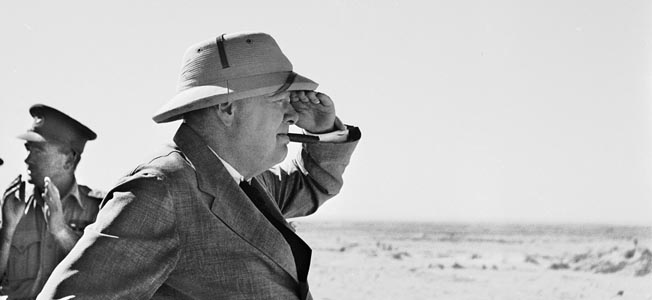
Brooke elaborated after the war, “I was at that time beginning to be upset by many messages that emanated from Auchinleck’s office. I was beginning to be suspicious that Dorman-Smith was beginning to exercise far too much influence on him.” In March 1942, Brooke dispatched Richard McCreery, an armor commander with the CIGS’s mind-set, to counter Dorman-Smith’s influence. Unfortunately, at the Staff College in 1928 Dorman-Smith had scornfully referred to him as “Dreary McCreery.”
“Commanders of Outstanding Promise With the Quality of Audacity”
In 1936, Dorman-Smith was appointed as an instructor at the Staff College (Camberly), but the commandant, to Chink’s dismay, was Lord Gort, VC, who, though a legend of bravery to the public, to him “personified military backwardness.” After only 16 months at the Staff College, Dorman-Smith was appointed colonel of 1st Battalion, Royal Northumberland Fusiliers, in Egypt. Intriguingly, when told to reactivate the defenses of Mersa Matruh, Dorman-Smith presciently commented on the futility of such a directive because Alamein, further to the east, was bound to be the decisive battleground of Egypt.
In May 1938, Dorman-Smith left for India as the director of military training. At Simla, he formed a close companionship with Claude Auchinleck, who was deputy chief, General Staff there. Two years later, Dorman-Smith received a request from General Archibald Wavell, commander in chief, Middle East, to take over as commandant of the new Staff College in Haifa. Thus, it is apparent that Dorman-Smith held a variety of prestigious staff and command positions during the interwar years and was held in high regard by both Auchinleck and Wavell. Captain Basil Liddell Hart, as military correspondent, included Dorman-Smith on a list of 14 officers labeled, “Commanders of Outstanding Promise with the Quality of Audacity.”
It was through these very postings that Dorman-Smith would interact with the Army hierarchy that would form Britain’s military elite in World War II. These interactions prior to 1942 would ultimately sow the seeds of discord, culminating in Dorman-Smith’s dismissal in August 1942 after victory at First Alamein.
“Evening Prayer” Sessions
Prior to their debut as the Eighth Army’s leadership duo, in late June 1942 Auchinleck and Dorman-Smith had devised a series of changes to Eighth Army’s fighting methods and organization. Both men stressed the importance of mobility and maneuver in war and were aware that recent fighting had clearly shown the futility of fixed defenses in the open desert. Their thinking, although viewed as radical, was attempting the risky endeavor to introduce fundamental tactical and logistical changes to an Army reeling in defeat.
A paramount decision was to restructure the use of artillery, which had been badly dispersed during the fighting at Gazala. Auchinleck and Dorman-Smith centralized artillery under divisional, corps, and even Army control. These decisions, which stemmed from their discussions in late June 1942, showed that both men were already thinking ahead to the fast-approaching day when Eighth Army would halt the Afrika Korps.
Dorman-Smith has been called Auchinleck’s “evil genius” and was made the scapegoat for all that was amiss with the Eighth Army in the summer of 1942. He was accused of selling Auchinleck fantastic and impracticable offensive plans during the July battles. The opinions of Dorman-Smith’s many detractors, privately conveyed to Alan Brooke, helped get Dorman-Smith sacked in August 1942.
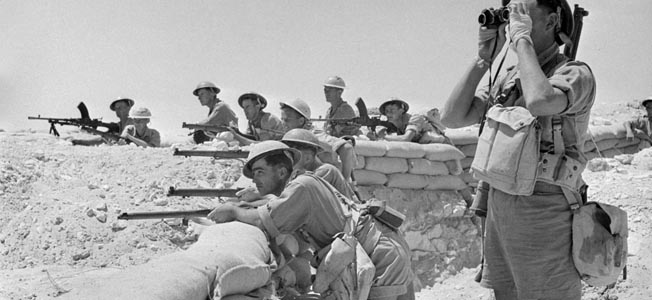
Not everyone criticized Dorman-Smith’s tactical and logistical plans in July 1942. Brigadier Frederick Kisch, the chief engineer of Eighth Army, on first seeing Dorman-Smith’s defensive plans to combat the Panzerarmee Afrika, is reputed to have said that it was the first time he had seen brainpower being applied to defense. In designing the system, Dorman-Smith and Kisch drew from the hard lessons of the battles at Gazala and Mersa Matruh. They designed a system with breadth and depth to deal Rommel a lethal blow in his bid for the conquest of Egypt.
Dorman-Smith and Auchinleck understood one another. However, the informal arrangement between them piqued the rest of the staff at Eighth Army headquarters. Auchinleck froze out other members of the staff with his “evening prayer” sessions in his caravan. These evening meetings were essentially discussions between Auchinleck and Dorman-Smith, effectively excluding the future disciples of Montgomery such as Charles Richardson (Plans), Hugh Mainwaring (Operations), and David Belchem (Staff Duties).
Dorman-Smith was Auchinleck’s chief inspiration and, thus informally, the principal staff officer of Eighth Army. Richardson had little regard for Dorman-Smith, so it is not surprising that this arrangement, compounded by Dorman-Smith’s acerbic personality, led to confusion and enmity at Eighth Army headquarters.
The Army Politics Behind the August Purge
In regard to the changes in Eighth Army command that occurred in August, Brooke wanted his protégé, Montgomery, to command Eighth Army after the untimely death of General William “Strafer” Gott, who would have taken command but died when his transport aircraft was shot down by a German fighter plane. Whisking aside Montgomery’s abrasive character and quirky habits, Brooke based his choice of Montgomery on his qualities as a hard trainer of troops and a supremely professional soldier.
Prime Minister Winston Churchill and Brooke flew to Burg el Arab, Egypt, on August 5, 1942, and were met by Auchinleck, among others. Dorman-Smith sensed Churchill’s hostility immediately and in his correspondence noted, “This was not going to be a nice visit.”
The atmosphere became worse when Auchinleck and Dorman-Smith gave a private briefing to Churchill in the operations caravan. Churchill was unimpressed and paid little attention to the briefing. The untoward fates of Auchinleck and Dorman-Smith were never in doubt afterward. Auchinleck was unable to properly inform the prime minister of the plans to meet a future offensive by Rommel or the details of Eighth Army’s planned offensive in September, fueling Churchill’s ire and compulsion for a shakeup in command. Churchill was also determined to remove some of Auchinleck’s subordinate commanders; namely, Dorman-Smith; General Thomas Corbett, chief of the General Staff, Middle East; and General William Ramsden, commander of XXX Corps. They were all to be sacked in this August purge.
After First Alamein and prior to Alam Halfa, Auchinleck was replaced by Sir Harold Alexander and Montgomery as commander in chief, Middle East and commanding general of Eighth Army, respectively. He was then to take up a new posting as commander in chief, India. However, Dorman-Smith was summarily removed from his position as Auchinleck’s unofficial chief of staff and not given a subsequent command or staff position. Dorman-Smith returned to the United Kingdom and dropped back to his substantive rank of lieutenant colonel. He was doomed to military oblivion except for the brief command of a brigade at Anzio. He was removed under controversial circumstances and left the Army in 1945.
Dueling Army Staff
Why was he treated in this manner after so many influential appointments and his contribution to the success of Operation Compass in 1940? Much of the animus between Churchill, Brooke, Montgomery, and Dorman-Smith was decades old.
Enmity also existed among the eventual members of Montgomery’s Eighth Army and 21st Army Group staff and Dorman-Smith. These staff officers bore deep resentments over the closeness between Auchinleck and Dorman-Smith just before and during First Alamein. Charles Richardson, then lieutenant colonel, Future Plans, wanted clarity and leadership, not debonair enthusiasm on the part of the deputy chief of staff. He resented the fact that discussions that should have been led by Auchinleck were often presided over by Dorman-Smith. The custodian of the incoming Ultra intelligence decrypts, E.T. “Bill” Williams, an Oxford history professor, was equally distrustful of Dorman-Smith, and he bridled at Chink’s arrogance without comprehending his military expertise.
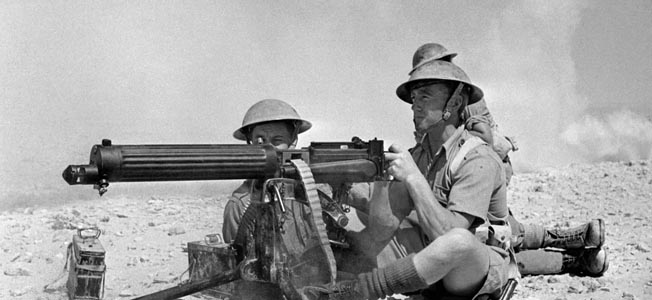
According to Brooke’s diary entry for June 28-30, 1942, “At the situation prevailing in the Middle East, it was quite clear that something was radically wrong…. I mistrusted the influence of Dorman-Smith on the Auk.” Brooke was intent upon intervening in the structure of the Middle East Command since Dorman-Smith’s intention to change the traditional organization of armor and infantry alarmed him.
During July 1942, Brooke’s emissary, McCreery, was posted to the Western Desert to “be informed of the intended radical change” as formulated by Dorman-Smith. In Dorman-Smith’s presence, McCreery refused to end the traditional separation of armored and infantry divisions, compelling Auchinleck to fire McCreery after this confrontation, which unfortunately was to serve as a prelude to the Brooke-Churchill visit in August 1942.
Another aspect to the growing enmity between Brooke and the Auchinleck/Dorman-Smith team was that Neil Ritchie was one of Brooke’s own protégés and had fought with him during the retreat to Dunkirk in 1940. Brooke noted in his diary, “I had grown so fond of him that I hated seeing him subjected to this serious reverse. I told him I considered he had been pushed on much too fast.”
During the Gazala battles, Dorman-Smith was incredulous at Ritchie’s underestimation of Rommel’s troops and urged Auchinleck, to no avail, to sack Ritchie and take over command himself. Auchinleck was loyal to Ritchie and felt that he was responsible for promoting him to command Eighth Army.
It is, thus, no accident that as early as August 4, 1942, Brooke was convinced that Dorman-Smith should be dismissed. In his diary, he again noted, “I had not yet had a chance of seeing one of the worst offenders, Dorman-Smith.” On August 5, after touring Eighth Army headquarters, Brooke had decided “the Dorman-Smith influence on Auchinleck was far too strong.”
Coincidentally, as the pivotal First Alamein battle was raging, a censure motion against Churchill’s handling of the war came up at Westminster on July 2. Thus, the pressure from the political arena was on Churchill to make changes in the Middle East Command following Eighth Army’s failures at Gazala and Tobruk.
From Commander to Scapegoat
In August 1942, all of the principal ingredients were present to blame Eric Dorman-Smith for much of the Eighth Army’s setbacks earlier in the spring: First was Dorman-Smith’s arrogant and maverick style in the rigid, tradition-bound system of the British Army. Second was his prewar series of antagonistic interactions with the likes of Montgomery and Churchill. Third, at an intellectual level, Dorman-Smith not only snubbed Brooke’s tactical configurations about armor and infantry divisions but also publicly and privately scorned his protégés, McCreery and Ritchie. Finally, the time was ripe for a dramatic shakeup in command in the Middle East since Churchill was under intense political pressure to identify and punish a scapegoat for the military shortcomings in the Middle East. Dorman-Smith fulfilled all these criteria.
Despite his sacking, it is quite evident from many in the British Army’s hierarchy that Dorman-Smith’s rise up the military ladder before World War II was deserved. His keen intellect contributed greatly not only to Operation Compass when he was Wavell’s staff assistant to General O’Connor, but, more importantly to the change in fortunes of the Eighth Army at First Alamein in July 1942. Halting Rommel laid the ultimate groundwork for the successful defense of the Nile Delta at the Battle of Alam Halfa just weeks after his dismissal.
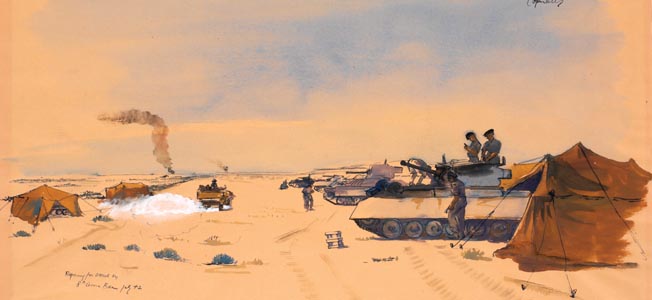

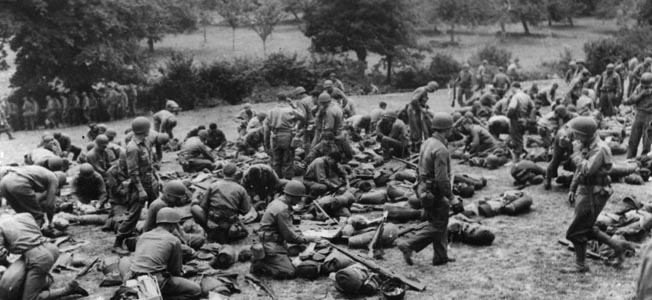
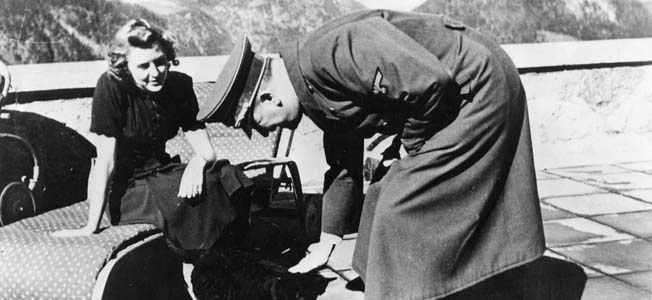
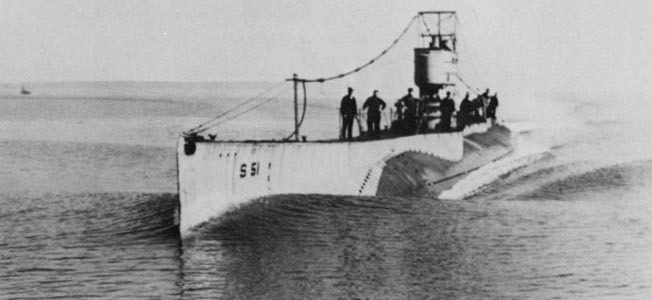

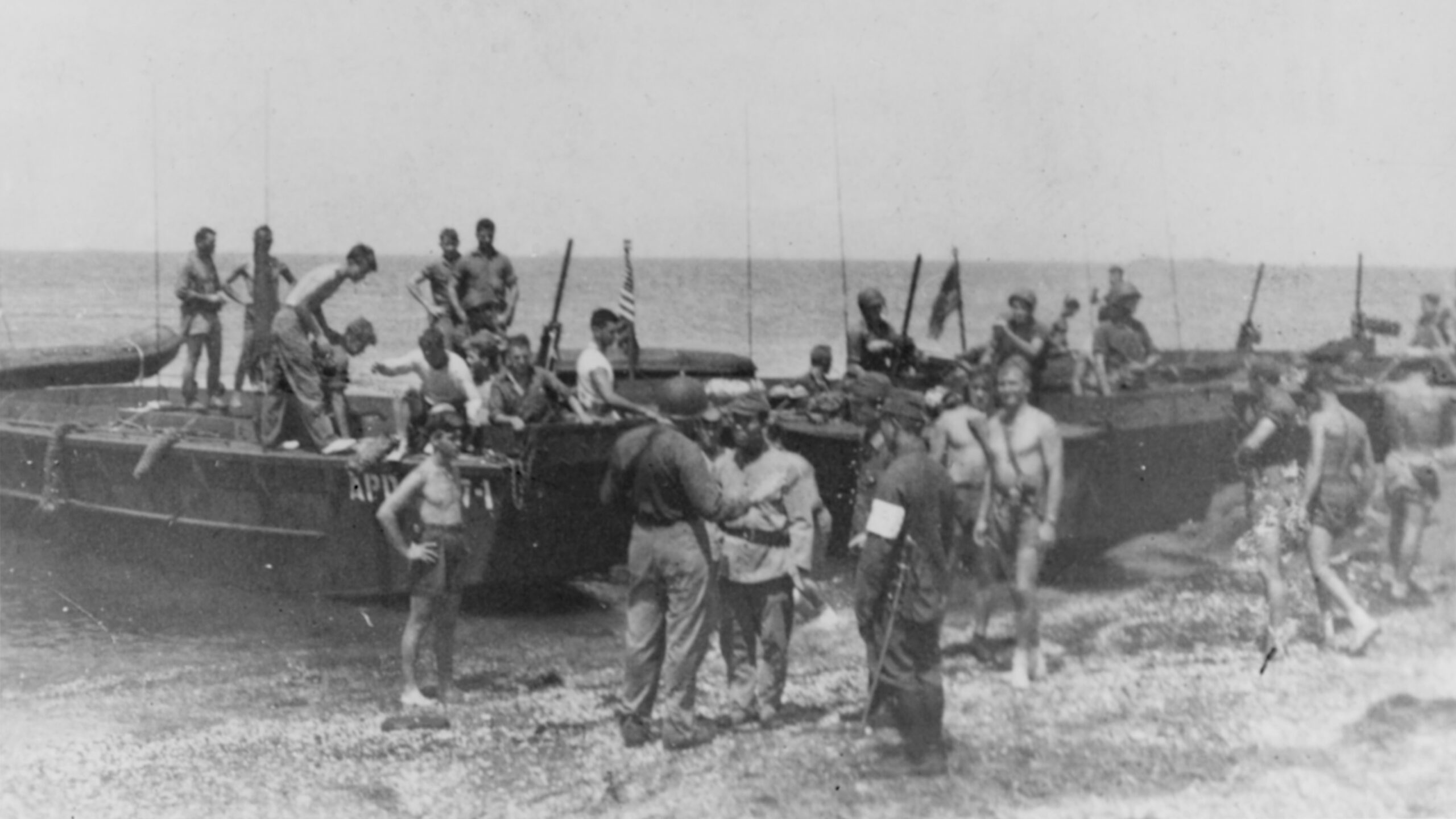
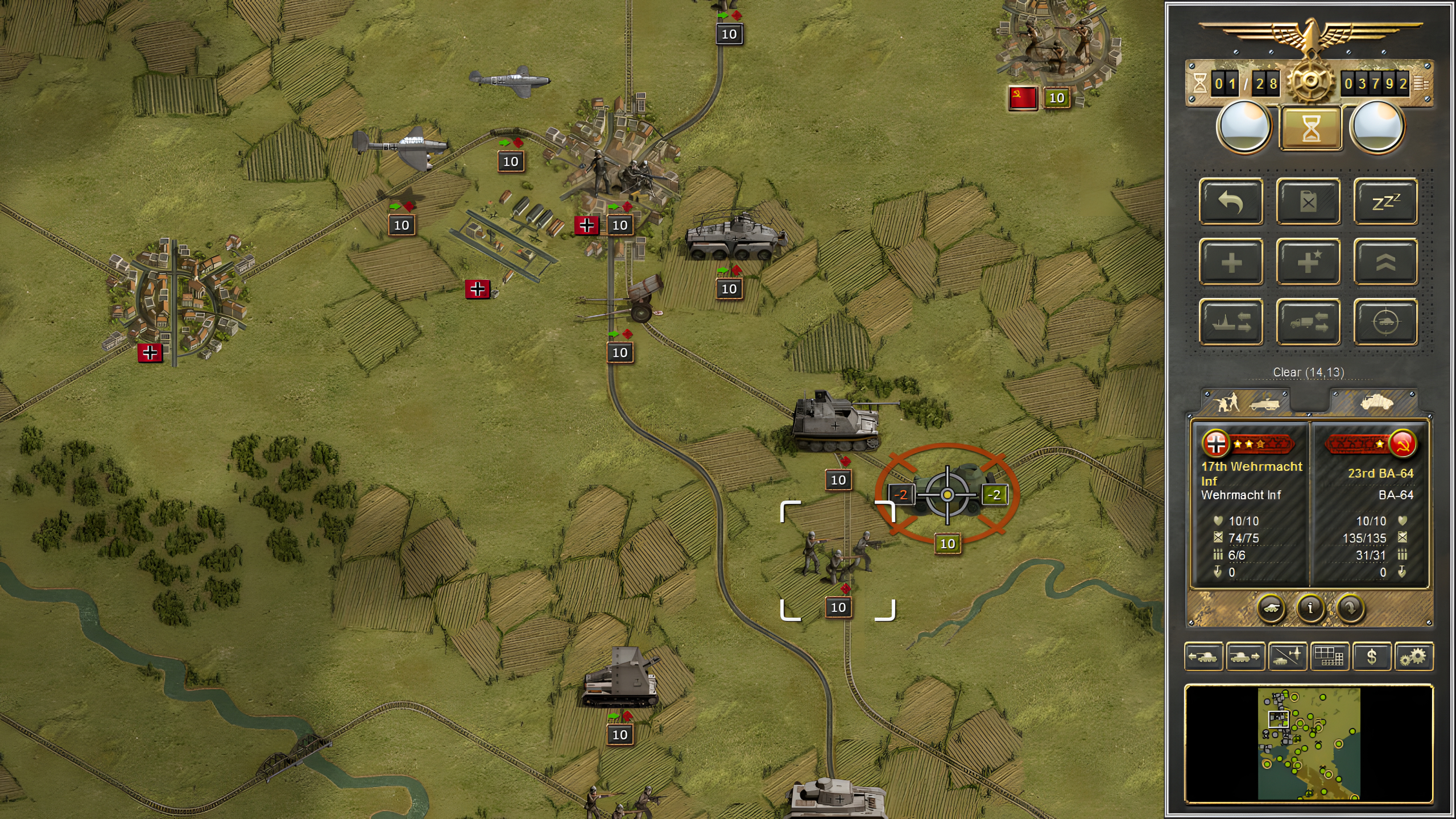
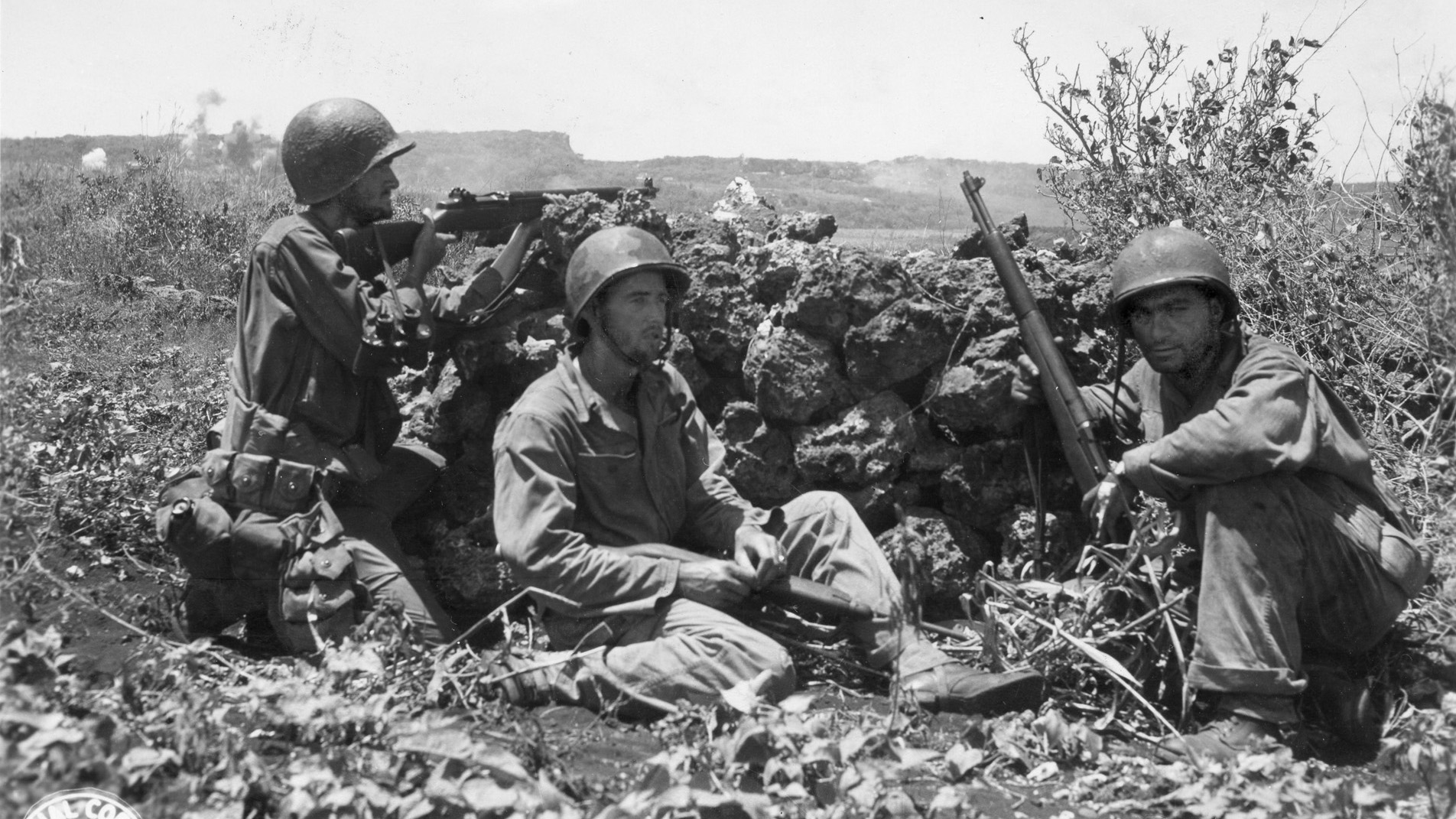
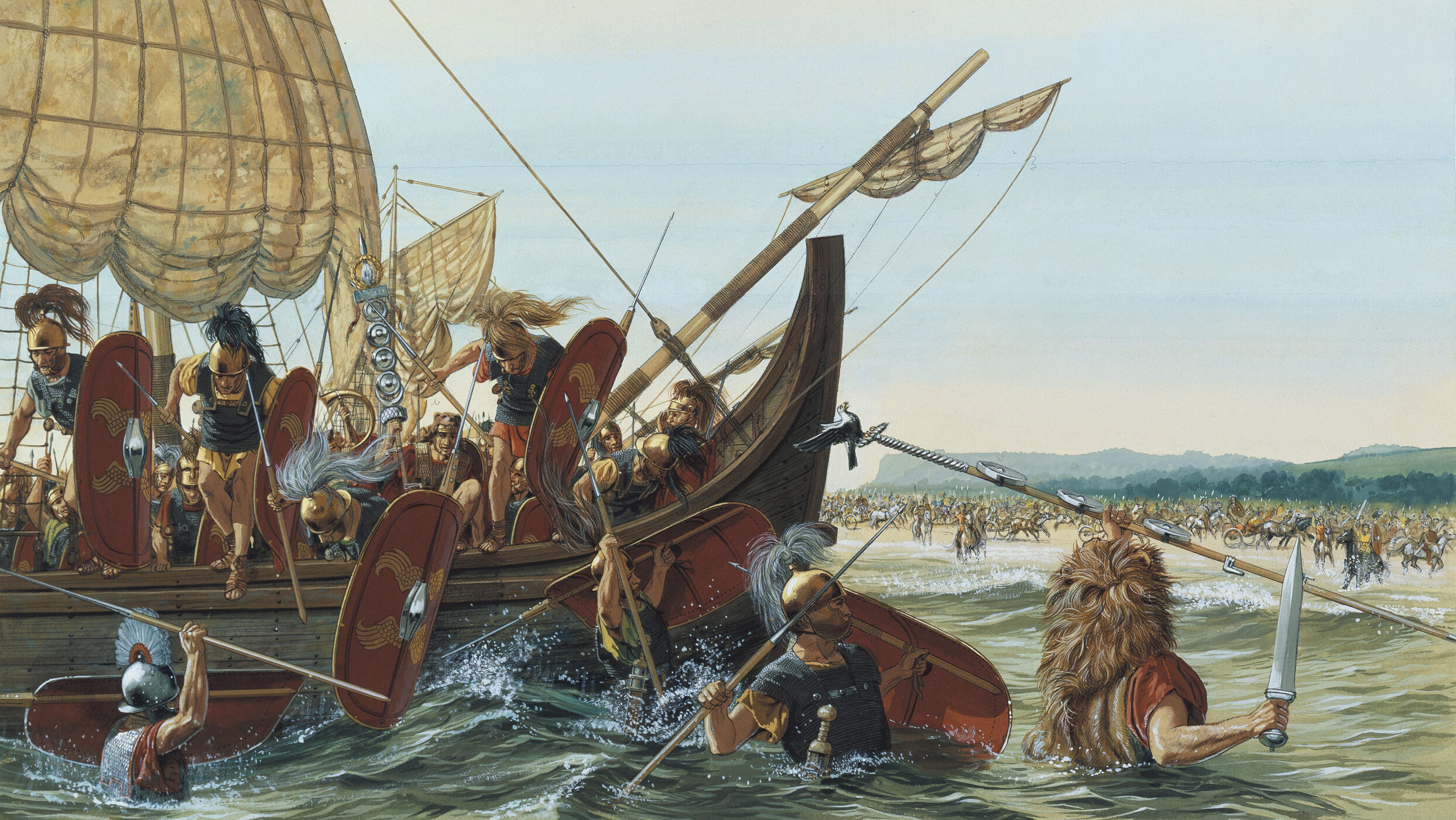
Join The Conversation
Comments
View All Comments